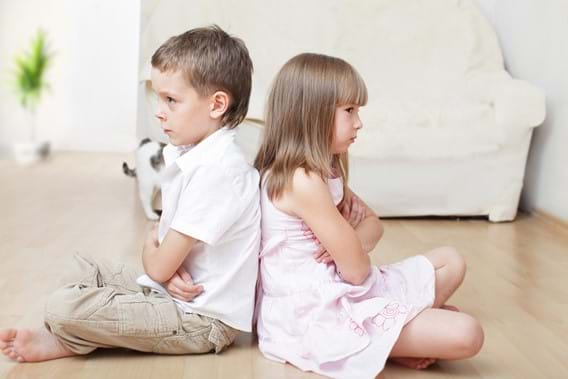
My Parents Love my Brother More Than me

Written by: Nanny Secours
Which parent hasn’t heard one of his children say, “you love him more than me”? To this statement, most parents will eagerly reply: “of course not honey, I love you just as much as I love your sister”... or do you? Do we really love our children equally? Could it be possible that we have a favourite child without actually admitting it to ourselves?
For most of us, the love we have for our children is unconditional, regardless of their ability to make us lose our cool. However, in some instances, a parent may feel he loves one more than the other. This feeling may be triggered by a difficult communication challenge with one of the children, or by the degradation of the emotional bond resulting from continuing conflicts. But does this translate into a weaker love for a child whom you are concerned about since birth?
Sometimes, the children themselves feel less well liked than their siblings. This feeling may be caused by repetitive conflicts or poor communication. Another possible cause is sibling rivalry. Certain children tend to be more sensitive to inequalities.
What should we do?
- Don’t deny what the child is feeling. Even if you consider these claims to be unjustified, his feeling is genuine nonetheless. Listen to him and try to understand his standpoint.
- Explain the love you have for your children using images or objects. This enables you to highlight special features of interest (e.g. “I love you like a dolphin because you are always ready to help others and cooperate. Like them, you are gentle but also assertive; I truly admire that from you!” or "I love you like a Bernese Bouvier because you are very affectionate and sociable. You are never afraid to reach out to others, and you are always ready to participate in activities. I think it’s great!”).
- Avoid comparing your children (e.g. “take the example of your brother; he always does what he’s told the first time.”)
- When a conflict erupts, avoid taking sides. Instead, encourage your children to find a solution together and impose their own limits.
- Share special alone moments with each of the children. If necessary, mark these moments on your calendar so that your children have the visual confirmation that the alone time they had with their parent is the same as that of their siblings. However, don’t try to give them the same amount of attention at all costs. The important thing is to meet their needs; these are different for each individual person.
- Be aware of the words you use with your children (e.g. “be patient, I must take care of your little brother. You’re a big kid now!”). Chances are your child will not find many benefits in being that kid! By changing the phrasing, you are reducing the risk of your child seeing his siblings as rivals (e.g. “hang on honey; we’ll do puzzles together as soon as your brother’s diaper is changed. Can’t wait! I like playing with you! I'd better hurry!”).
- Propose out-of-school activities for each child to avoid comparisons.
- Showcase the best of everyone's strengths (e.g. “Julian is the sportsman of the family, and Camilla is the artist!”).
To summarize, it’s important not to measure the love you feel for your children. Here’s a tip from a colleague. Take a paper heart and say, “let’s pretend this heart represents all the love I have for you.” Now, rip the paper heart in half (keep only one half in your hand) and say, “you think the love I give to your brother is this part and the love I give you the other part?” Then, pull at least three full hearts and explain, “no honey, I feel all this love for you and all this love for your brother, and all this love for your sister.”
Ultimately, the love you feel for each child is unique and unconditional.

Hélène Fagnan, Family Coach
Founder of Nanny Secours(French only)


